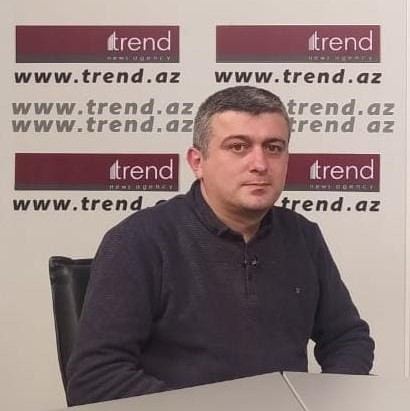BAKU, Azerbaijan, June 14. Regional developments, as well as Iran's cooperation with the International Atomic Energy Agency (IAEA), suggest that discussions on the Joint Comprehensive Plan of Action (JCPOA) will soon begin in a third country or in Vienna, Austria, a member of the National Security and Foreign Policy Commission of the Iranian Parliament, Shahriar Heydari said, Trend reports.
Heydari noted that the parties announced their readiness to hold discussions on the JCPOA. At the same time, the Atomic Energy Organization of Iran (AEOI) increasing its cooperation with the International Atomic Energy Agency is a signal to start discussions.
“Cooperation between the AEOI and the IAEA has so far brought the relationship even closer. So, in the near future, meetings may be held within the framework of the JCPOA,” he added.
According to the official, there are no unknown issues left for discussions.
"However, a number of issues, including the presidential election in the US, the staff of the negotiating teams, as well as Iran's intended plans, are factors affecting the JCPOA negotiations," he explained.
Heydari also pointed out that the US wanted direct talks with Iran, but the Islamic Republic didn't accept the offer.
"Iran intends to negotiate within the framework of the JCPOA. After discussions under this plan, if a number of steps are taken by the US, Iran is ready to reopen the US embassy in Tehran. However, if the JCPOA negotiations fail to reach a conclusion, Iran will not negotiate directly with the US.," he said.
In January 2016, JCPOA was launched between Iran and the P5+1 group (US, Russia, China, UK, France, and Germany) in connection with Iran's nuclear program. In May 2018, the US announced its withdrawal from the deal and imposed sanctions on Iran in November of the same year. To preserve the agreements reached as part of the JCPOA, the European signatories of the deal started in January 2019 that a financial mechanism for maintaining trade with Iran called INSTEX was formed.
On May 8, 2019, Iran announced that it had ceased fulfilling its commitments regarding the sale of over 300 kilograms of uranium, as stated in the deal, basing its decision on the other signatories that have not fulfilled their obligations. On July 7, Iran announced that it will not be fulfilling its commitments regarding the enrichment of uranium at 3.67 percent and the reconstruction of the Arak Heavy Water Reactor Facility as stated in the deal.
Iran announced that it will enrich uranium using next-generation centrifuges and will not mix it with the enriched uranium residues as part of the third step of reducing commitments in JCPOA on Sept.5. On Nov. 5, 2019, Iran announced that it took the fourth step in connection with reducing its commitments to the nuclear agreement. So, uranium gas is being pumped to the centrifuges at the Fordow Fuel Enrichment Plant.
On Jan.2020, Iran took the last fifth step in reducing the number of its commitments within JCPOA.
On May 8, 2018, the US announced its withdrawal from the Joint Comprehensive Plan of Action (JCPOA) between Iran and the 5+1 group (Russia, China, the UK, France, the US, and Germany), and imposed new sanctions against Iran as of November 2018.
Over the past period, the sanctions affected Iranian oil exports, more than 700 banks, companies, and individuals. The sanctions have resulted in the freezing of Iranian assets abroad.
---
Follow the author on Twitter:@BaghishovElnur







